Russia in search of military alliances
The problem of the expediency of certain coalitions of a military or politico-military nature for Russia is acquiring a new urgency in connection with the ideas of expanding and strengthening cooperation with NATO, up to the possible entry into this traditionally and constantly anti-Russian alliance. In this regard, I think it will be useful to give an overview of the past coalition policy of Russia, which can serve as information for reflection already on contemporary subjects.
Before the attack. Under the Plevna. Vereshchagin Vasily Vasilyevich
WHAT WAS IN THE BEGINNING?
The first coalition with the participation of Russia was the anti-Swedish, the Northern War of 1700-1721: Russia, Denmark, Poland and Saxony.
Two hundred years later, the clever Russian general said that if Romania joined Germany in World War I, Russia would need an extra two dozen divisions to defeat the Romanians, and if the Romanians became allies, the Germans would quickly defeat them, and then Russia would need the same two a dozen divisions to protect the Romanians.
The same was true of our “coalition” with the Danes and Augustus the “Strong”. True, Peter then only studied real politics, and the coalition, although inferior, had some reason - Russia needed to show itself as a European power. However, our “allies” did not so much fetter (no talk about victories at all) of Charles XII, as they were a burden. Oreshek, second Narva, Forest, Poltava, Gangut, landings to Sweden, Grengam sea battle - these are all Russians, not “coalitional” sweat, blood and glory!
We remember the victory of the Russian wonder-bogatyrs at Egersdorf in the Seven Years War 1756-1763, that the Russians reached Berlin for the first time in 1760. But we do not remember well that the Seven Years War began because of the colonial conflicts of England and France, and then we were dragged into this completely unnecessary Russia by the Austrian Empress Maria Theresa, deftly using Elizaveta Petrovna’s personal offense against the Prussian King Frederick.
The conflict between Prussia and Russia was beneficial to Austria, France, England and Sweden. The famous memoirist of those times, Andrei Bolotov (himself a member of the Seven Years War) wrote: “The (secret) alliances were concluded (Maria Theresia - author's note) with the Saxon elector, who was then the Polish king, also with the King of France and Sweden itself. All convenient ways were used to conclude such an alliance with Russia and to bow to it so that she would also be entangled in her intended and not at all relevant business. ”
Yes, since Russia turned into a European and world factor, they have tried to “weave” it into alien adventures more than once. And, alas, more than once "woven"!
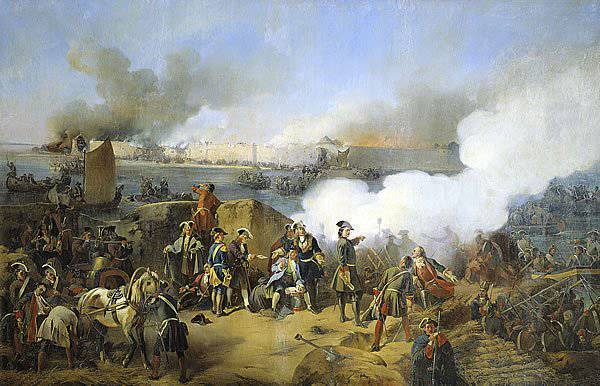
What did the first anti-Napoleonic “coalition” cost, for example, when Ushakov experienced all the “charms” of interaction with the Anglo-Saxon Nel-sonon, and Suvorov with the Austrian Gofkrygsrat. No sooner had the emperor Paul (by any means, it should be noted, not a fool) understand the harm of this "coalition", as he was immediately brutally murdered by English agents of influence from among the Petersburg nobility.
And as a result of the second anti-Napoleonic coalition, created in the name of the elimination of the continental blockade of England — objectively very beneficial for the Russian national capital and production, Russia received the fire of Moscow.
The post-Napoleon “Holy Alliance of Monarchs” was no more useful and beneficial for Russia, the result of which was the Russian intervention in Hungary in 1848. To cover the costs of this “anti-terrorist” (using modern terminology) campaign, Nicholas I climbed into a bonded external debts without any benefit for internal development.
All these “coalitions” brought Russia nothing but Paris fashion for lacquered “Suvorov’s” boots, European graves of Russian “wonder heroes”, Borodin’s glory (without which Russia could have done without France) and new debt.
Nikolai Dmitriev-Orenburg. “General M.D. Skobelev on horseback.
“Weaving” into European “showdowns” did not make sense to us. We had to develop a national economy and industry, to which the same, let's say, alliance with Napoleon contributed greatly.
Of course, after Napoleon went to war with us, it was necessary to fight with him to the bitter end. But it is time to understand that Napoleon had no plans to conquer Russia. He was forced to start a war, because the participation of Alexander I in the "coalition" with England disrupted his continental policy. But its anti-English orientation objectively stimulated our domestic economic growth. The union with Napoleon meant for us peace and development, a “coalition” against it — war and military spending, which undermined our economy. I suggest the reader to think independently about whether there are any parallels with our policy regarding, for example, Iran. It greatly hinders the West and the United States, but not very much hinders Russia, except for the Caspian aspect, which is best resolved amicably.
Alexander II continued the mediocre "coalition" policy of Alexander I. After the sedan collapse of Napoleon III’s empire and the victory of the Germans in the Franco-Prussian war, the king demanded that Prussia confine itself to less reparations than she hoped to get from France. What for?
In 1875, Bismarck started a preventive war against France. Alexander II breaks these plans. As a result, Russia after the Russian-Turkish war at the Berlin Congress faces opposition from Austria-Hungary and England, but Germany does not support us.
In 1879, Wilhelm I and Alexander II fell out completely. Not far away, but the proud Russian “Tsar Liberator” was offended by Germany for her behavior at the Berlin Congress - as if Germany had no counter-claims to Russia. And they had grounds ... So, in 1887, Bismarck again plans to defeat France. But this has already prevented Alexander III. In the same year, June 18, the Russian-German so-called “reinsurance contract” was concluded, tying the hands of the Germans in relation to France!
And what did we have before that France? Germany was our rational economic partner! Alas, the dull royal policy harmed both the economy and the future of Russia. But such a policy was programmed far from stupid and far from in St. Petersburg.
BALKAN KAPKAN
Separately, it should be said about the Balkan policy of Russia and, first of all, about the Russian-Turkish war of 1877-1878. Lawyer Anatoly Koni, her contemporary, wrote at the beginning of the twentieth century: “Brothers” turned out to be “scoundrels”, according to the unanimous opinion of the military, and the Turks, on the contrary, were “good honest little ones” who fought like lions, while the liberated brothers had to be extracted from corn. "
But the opinion of the historian Eugene Tarle: "The Crimean War, the Russian-Turkish war 1877-1878. and the Balkan policy of Russia in 1908-1914 - a single chain of acts that did not have the slightest sense in terms of the economic or other imperative interests of the Russian people. ”
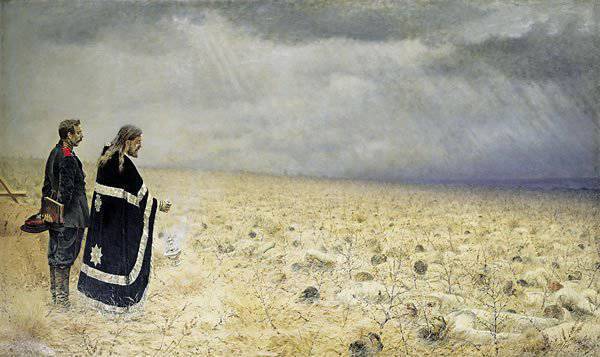
It would not be superfluous to quote the assessment of the General Staff of Major-General Yevgeny Martynov: “Catherine exploited the sympathies of Christians for the benefit of national interests, and the policy of the later time donated blood and money to the Russian people in order to make it more comfortable for the Greeks, Bulgarians, Serbs and others, as if loyal fellow tribesmen and co-religionists ”.
General Martynov did not use the bitter words “supposedly loyal to us” from an empty head. The combat losses of the Russian Danube army during the war amounted to about 40%, to the allied Romanian army - less than 15%, and participation in the liberation of Bulgaria from the Turks of the “Bulgarian militia” was episodic. Serbia also deployed troops, modest both in number and in their combat activity. So did Koni exaggerate when he wrote: “The gloomy irony breathed the shedding of the blood of a Russian soldier, torn from a distant chicken hut, bast shoes and chaff, to ensure the well-being of the“ brat ”walking in his boots, picked up on meat and corn and carefully hiding from his eyes” savior "tightly stuffed pod in the underground of his strong home with stoves and household appliances"?
Participation in the First World War on the side of the Entente is the main "coalition" mistake of tsarist Russia
However, the experience of the then “liberation of the Slavs”, which cost Russia up to 200 thousands (at that time!) Of lives, didn’t go ahead. Tsarism still fell under the trap of "coalitions" and supported "little brothers" in the Balkan wars of the twentieth century. Although the same Tarle reported: "Serbia and Bulgaria live ... with agriculture and cattle breeding, and for them ... the question of Macedonia (one of the main reasons for the war with Turkey - author's note) was ... the question of new arable land and new pastures ... For Serbia Thessaloniki’s acquisition was tantamount to access to the sea, which was what the exporters of Serbian cattle and raw materials needed. ”
Well, how are we making any profit here?
Or - the Black Sea straits. The "Russian" Bosphorus and Dardanelles were needed by the Parisian Rothschilds and the Nobels - as the owners of Russian oil. The straits were needed by the French capital, who owned the Donbas and the heavy industry of southern Russia. Formally, the “Russian” straits would also cut off German interests in the Middle East - in the interests of the already English Rothschilds and international oil magnate Deterding.
That was the background ... Over the decades of its Balkan policy, Russia had only glory in the Balkans, the graves of Russian soldiers and boulevards in the Balkan capitals, named after the Russian generals. But economically the Balkans depended on Germany, France, England. And politically, too.
There is an interesting document - “Note by the State Councilor A.M. Petryaeva. As a foreign minister already, he wrote in 1917: “England and France will not contribute to the formation of a large Slavic state on the Adriatic coast ... They will undoubtedly prefer the creation of an independent Croatian kingdom, which will fall completely under their influence.” However, Petryaev was wrong. Yugoslavia was created on the basis of the unification of Serbia and Croatia with the support of the Entente. But not in Slavic Petrograd, but in London. In May 1915 was formed by the Yugoslav Committee headed by the Croatian Ante Trumbich, who played a prominent role in the South Slavic state structure with the help of the British. And this is despite the fact that English Foreign Minister Gray told Milyukov in 1916 that, as they say, the Serbs and the Croats will settle there, this is their internal affair and also Russia. England, they say, does not care about this.
ANTANTA - “HEART CONSENT” TO THE EVIL OF RUSSIA
All the Balkan miscalculations, however, turn pale before the main "coalitional" mistake of tsarist Russia - participation in the anti-German Entente. Smart Russian European politics fit into three words: "Peace with Germany." It would be difficult to conduct a decent, respectful “German” policy of Russia, but it is possible! After all, many critical moments arose precisely because of the vastness of mutual Russian-German relations.
Instead, Russia once again let itself be drawn into “nothing to do with it” - the elimination by America of the most dangerous geopolitical rival, the German Reich. Yes, the world war was being prepared not in London, but in Washington, although it was usually considered to be the cause of the confrontation between Germany and England.
But this is not so! English gold spread over the globe, and the result was a lack of it for building up internal power. England has grown, new industries have developed slowly. In 1913, the United States smelted 31,3 million tons of steel, and England - 7,7. Germany - 17,3 million. Without such colonies as the English, the Germans created a powerful economy within their own country.
Alexander III
And the main world contradiction was no longer the Anglo-German, but the American-German. Here is what the German ambassador to Washington Holleben wrote to 1 on January 1898: “The economic contradictions between Germany and the United States have become increasingly acute since the great boom experienced by Germany as an economic force, as far as US attitudes are concerned, entered the acute stage. Now Germany in the local press and in the philistine conversations is by far the most hated country. This hatred relates primarily to a constraining competitor, but it is also being transferred onto purely political grounds. We are called gangsters and robbers from the main road. The fact that discontent against us goes so far and manifests itself more strongly than against other competitors is due here to the fear of our growing competitiveness in the economic field and our energy and increasing power in the field of political ”.
Holleben's assessment is bright, accurate and valuable, which proves that the United States did not see England as a serious prospect. But there they feared the Germans.
The general statements of Holleben are well illustrated and practical. In the same 1898, the Spanish-American war began. States landed in the Philippines. However, in the Manila Bay was sent from China and the German squadron. 12 June 1898 was anchored by the American squadron, which was inferior to the Germans. In the US press, a wave of "noble indignation." And it was why - the Germans from the United States ransacked some of the tasty pieces of the “Spanish pie”. The government of Spain sold Germany the Caroline and Mariana Islands. But this was only the beginning. At the same time, Lenin, with his usual merciless accuracy, noted: "The United States has" views "of South America and is struggling with the growing influence of Germany."
But the great European war would have been impossible if they had not “wove” Russia into it as an enemy of Germany. A lasting alliance between Russia and Germany ruled out a world war, since it ruled out its first inevitable phase - the war in Europe. Having a neutral, if not allied, Russia in the rear, the Germans would have entered Paris in a couple of weeks of hostilities. On the other hand, without being distracted by the war and focusing on domestic economic and social construction, Russia would eventually get rid of the influence of foreign capital, but at the same time would interfere with America and the cosmopolitan elite of the world.
Eliminate the real dangerous rival of the United States - Germany, and deprive the great future of a potential competitor - Russia, this is the origin of the First (and Second) World War. And the “trap” of the Entente here was set up not to pinch the paw of the Russian bear, as in the Balkans, but to put the bear in the cage forever!
It does not bother to remind: on the eve of the October Revolution, Russia's public debt exceeded 60 billion rubles - seventeen pre-war annual state budgets. At the same time, external debt amounted to 16 billions, of which about 9 billions were one short-term debt. That is, immediately after the war, Russia would have to pay the West almost three prewar budgets immediately.
That would be the price of the last coalition of Tsarist Russia, if not for the "villains-Bolsheviks" who not only canceled the Tsar's debts, but also made such counterclaims (justified by volumes of documents) to the "allies" at the Genoa Conference that the question was right there jammed.
TWO UNCHANGING FAITHFUL ALLIES
I will not now deal in detail with the coalition policy of the Soviet Union. I note only that, in my opinion, the interstate conflict between the USSR and Germany was by the end of the 1930-s - the beginning of the 1940-s. not so great that the new war between the Russians and the Germans was inevitable. And the forced coalition of the USSR with the United States and Britain had so many “pitfalls” that some of them would rip the “belly” of the state ship of Russia even in 1991, and later.
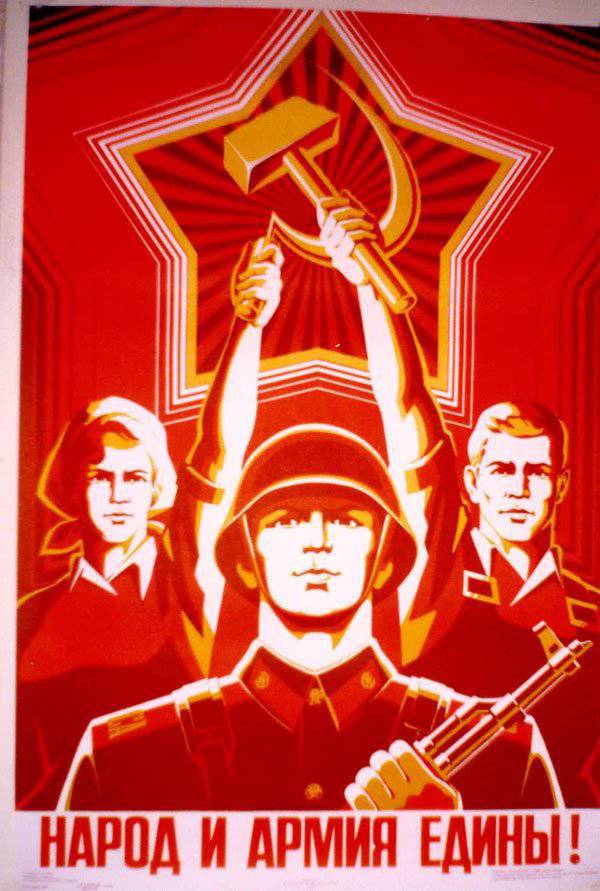
Our coalition policy with respect to the socialist countries of the CMEA and the Warsaw Pact was no more reasonable. All these our allies received much more from us than they gave us, but in the end they betrayed Russia.
Separately, it must be said about China. No other great power has taken as many unselfish and large-scale steps for the development of the PRC as the USSR. In "gratitude," China is increasingly pursuing a policy of creeping expansion against Russia.
And finally, the theme of NATO. We are assured that there is no life without partnership with NATO. Is it not the opposite? Or is the “partnership” and coalition with NATO deadly dangerous for the future of Russia?
But what do we do? I think, first of all, it is necessary, finally, without emotion to study and analyze history our coalitions. Today they often refer to the famous phrase of Alexander III: “Russia has only two faithful allies - its army and its fleet”. Alas, the penultimate emperor only spoke well, but in fact he foolishly embroiled Russia in the cause of the future Entente and in the silliest conflict with Germany.
Any development of relations with NATO will be no more expedient and useful for Russia than the previous "alliances" with Augustus of Saxony, with Austria of Maria Theresa against Prussia, with England of Admiral Nelson and Austria of the corrugated nation against France, with the "Holy Alliance", with all sorts of "bratushkami" and with the Entente.
As for our relations with any of the national republics that were part of the USSR, then, given the fraternal and friendly nature of such relations, they can hardly be regarded as coalition ones.
A coalition is a temporary phenomenon, it is a union created to solve a complex of current problems. And the relations of the Russian Federation with those republics that naturally enter the Russian geopolitical space objectively have such a basic meaning and significance for all of us that here it is necessary to speak of the need not for a coalition, but for a lasting civilization alliance. It is not at all in the plane of an alliance with NATO that a stable and dignified future lies even among the Baltic states: Lithuania, Latvia, and Estonia. What can we say about the rest of the republics and peoples, which are even more closely connected with Russia? The new indestructible and conscious reunion, and not the "coalition" farce, is necessary for us here.
And the more consistently and far we go along this path, the more relevant will be for us the formula of the penultimate Russian emperor. Only the “coalition” of Russia with its modern Armed Forces, which is based on a nuclear shield, provided, ensures and is able to ensure our national interests. And the mighty Armed Forces are actually created not only and not so much by the military-industrial complex, but by people who are confident in themselves, in their social and historical future, living according to the principle: "The people and the army are one."
- Sergey Tarasovich BREZKUN - Professor of the Academy of Military Sciences
- http://www.nationaldefense.ru/includes/periodics/maintheme/2012/0706/15208760/detail.shtml
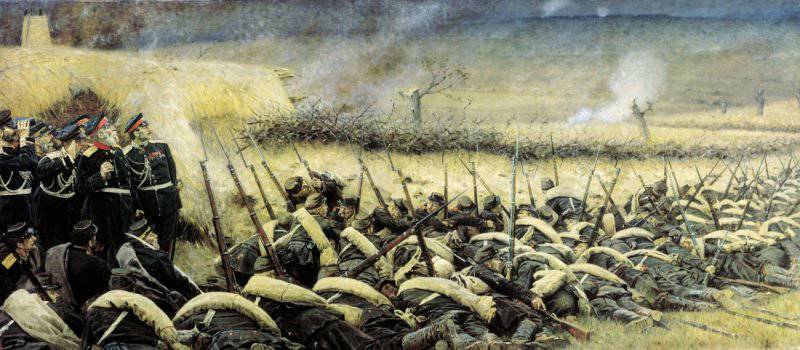
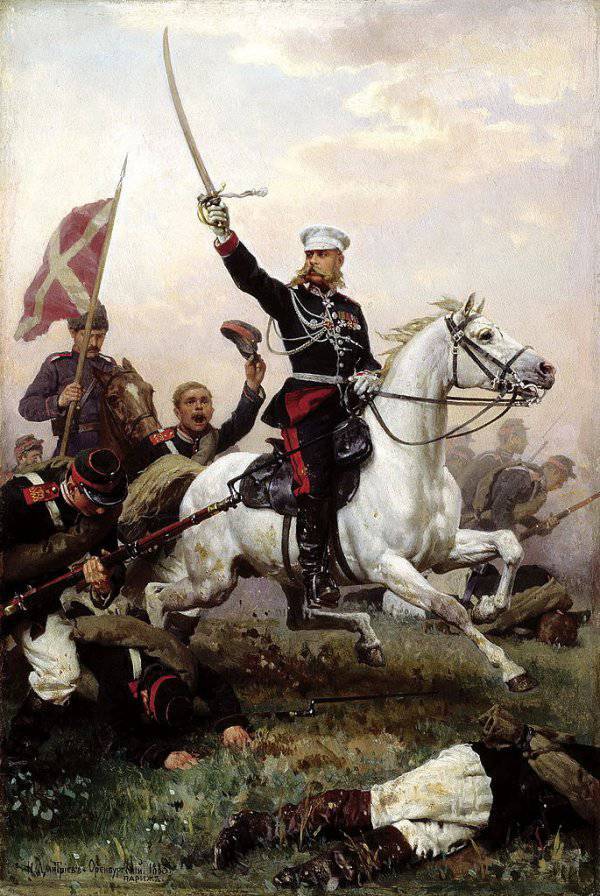
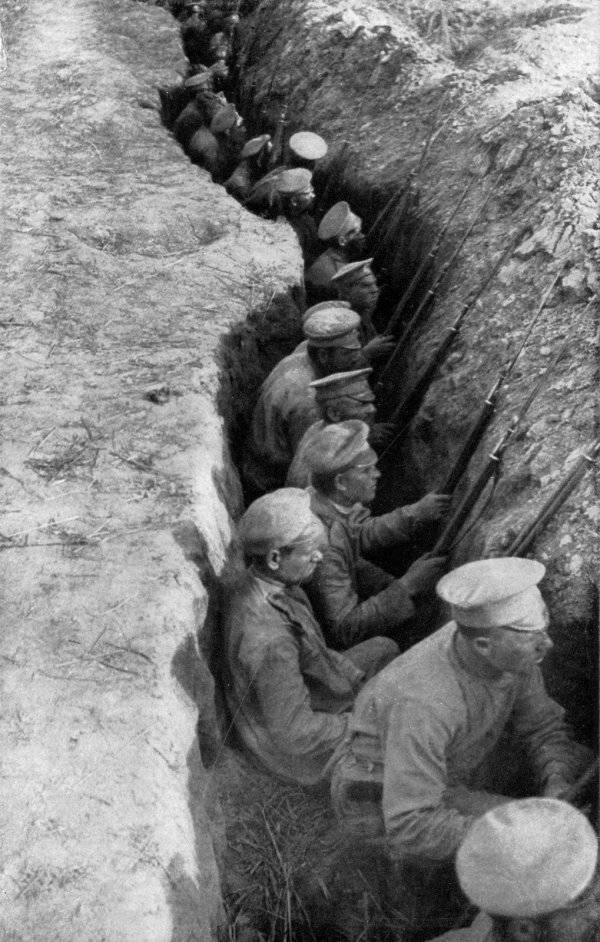
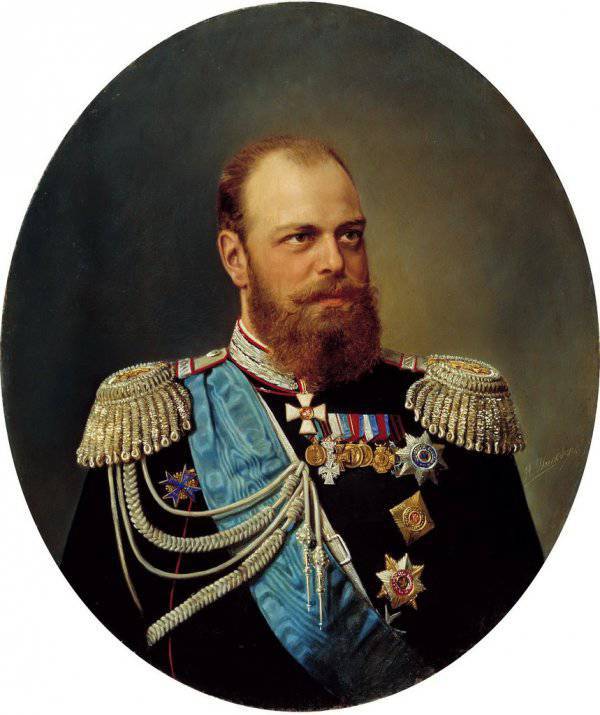
Information